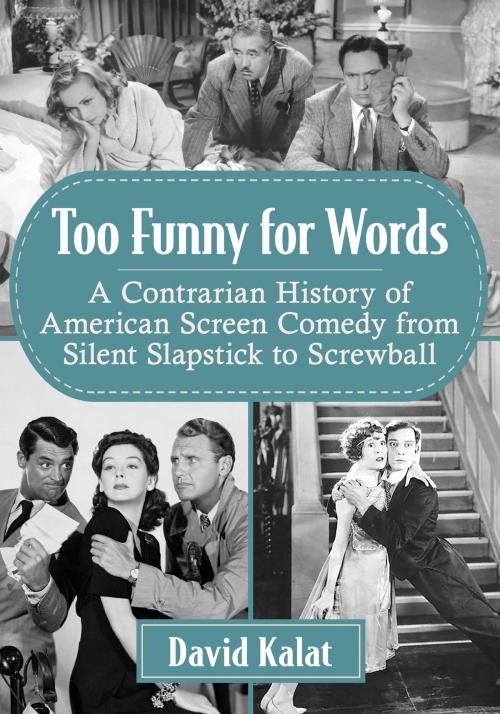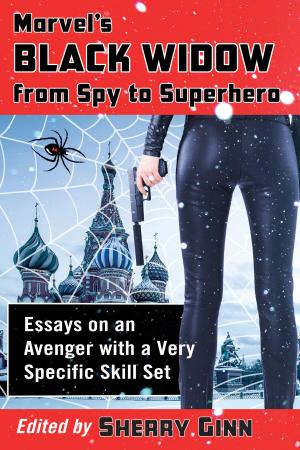Too Funny for Words
A Contrarian History of American Screen Comedy from Silent Slapstick to Screwball
Nonfiction, Entertainment, Film, History & Criticism, Performing Arts| Author: | David Kalat | ISBN: | 9781476636528 |
| Publisher: | McFarland & Company, Inc., Publishers | Publication: | April 11, 2019 |
| Imprint: | Language: | English |
| Author: | David Kalat |
| ISBN: | 9781476636528 |
| Publisher: | McFarland & Company, Inc., Publishers |
| Publication: | April 11, 2019 |
| Imprint: | |
| Language: | English |
American silent film comedies were dominated by sight gags, stunts and comic violence. With the advent of sound, comedies in the 1930s were a riot of runaway heiresses and fast-talking screwballs. It was more than a technological pivot—the first feature-length sound film, The Jazz Singer (1927), changed Hollywood. Lost in the discussion of that transition is the overlap between the two genres. Charlie Chaplin, Buster Keaton and Harold Lloyd kept slapstick alive well into the sound era. Screwball directors like Leo McCarey, Frank Capra and Ernst Lubitsch got their starts in silent comedy. From Chaplin’s tramp to the witty repartee of His Girl Friday (1940), this book chronicles the rise of silent comedy and its evolution into screwball—two flavors of the same genre—through the works of Mack Sennett, Roscoe Arbuckle, Harry Langdon and others.
American silent film comedies were dominated by sight gags, stunts and comic violence. With the advent of sound, comedies in the 1930s were a riot of runaway heiresses and fast-talking screwballs. It was more than a technological pivot—the first feature-length sound film, The Jazz Singer (1927), changed Hollywood. Lost in the discussion of that transition is the overlap between the two genres. Charlie Chaplin, Buster Keaton and Harold Lloyd kept slapstick alive well into the sound era. Screwball directors like Leo McCarey, Frank Capra and Ernst Lubitsch got their starts in silent comedy. From Chaplin’s tramp to the witty repartee of His Girl Friday (1940), this book chronicles the rise of silent comedy and its evolution into screwball—two flavors of the same genre—through the works of Mack Sennett, Roscoe Arbuckle, Harry Langdon and others.















